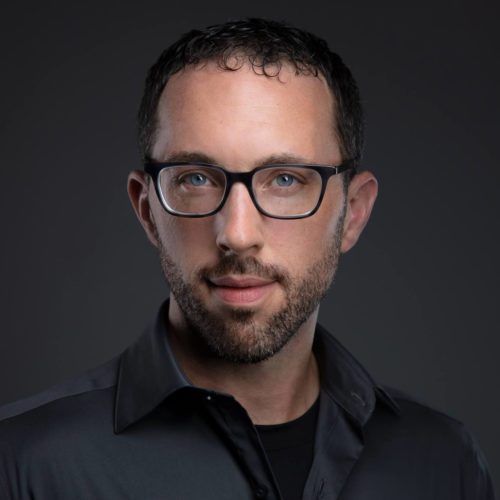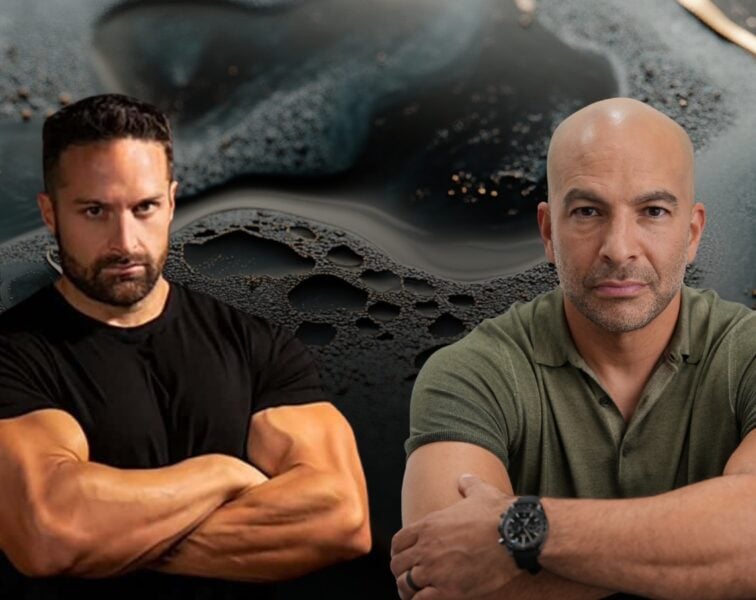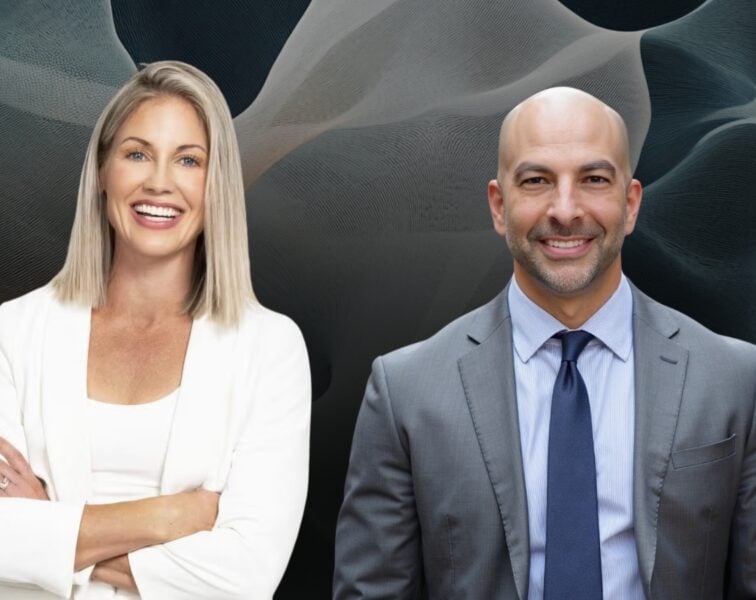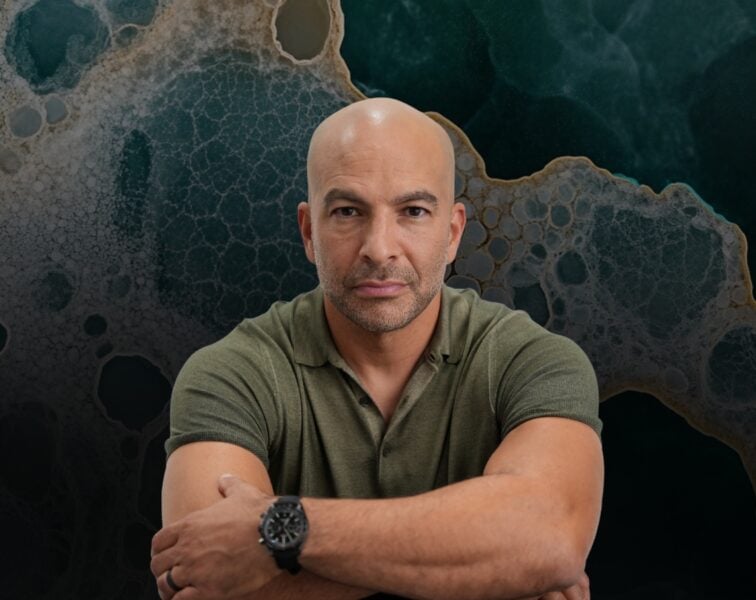In this episode, Chris Masterjohn, entrepreneur, independent researcher and doctorate in nutrition, elucidates the latest research on the risk and benefits of NAD supplements, and shares his personal intuition on the topic. We also dive deep into choline deficiency and its role in the rising prevalence of nonalcoholic fatty liver disease. From there, Chris enlightens us on the importance of methylation, a simple yet profoundly important biochemical process affecting our physical and mental health. He also describes the variations of the genes MTHFR and COMT, enzymes which play important roles in methylation and which have profound impacts on our well-being.
Subscribe on: APPLE PODCASTS | RSS | GOOGLE | OVERCAST | STITCHER
We discuss:
- Chris’s background, falling in love with biochemistry, and decision to pursue research over medicine [7:45];
- Choline: what it is, why it is important, and how a deficiency can cause non-alcoholic fatty liver disease [11:45];
- NAFLD: increasing prevalence and potential causes [25:00];
- TMAO: Should we be worried about the TMAO content in choline and our foods? [39:15];
- Types of fatty acids: How they may predispose us to different types of illnesses [53:30];
- Why don’t we see low VLDL in patients with NAFLD? [59:45];
- Understanding flux, and how machine learning may affect medicine in the near future [1:03:15];
- NAD: How it works, supplements, sirtuins, and the central role of the liver [1:09:30];
- Intravenous NAD [1:33:00];
- Oral NR: Is it the optimal way to get more NAD? [1:38:30];
- What is the possible harm of taking an NAD precursor? [1:47:15];
- The MTHFR gene [1:49:45];
- The methylation pathway [1:58:15];
- The COMT gene [2:04:30];
- Creatine: The uses and benefits and it’s important role in methylation [2:10:15];
- Dietary strategies for MTHFR: choline, creatine, folate and glycine [2:16:45];
- How to mitigate the negative effects of NAD supplements [2:23:45];
- A case study of a person with high homocysteine [2:28:00];
- What is the level of evidence that you need to take an action? [2:32:15];
- Does Chris supplement with NAD precursors? And can it improve symptoms of rosacea? [2:35:45];
- Decision making in the face of inconclusive data, and trying to disentangle the placebo effect [2:39:00];
- What does Chris believe to be true that very few people would agree with him about? [2:43:15];
- How to follow Chris’s work [2:48:45]; and
- More.
Get Peter’s expertise in your inbox 100% free.
Sign up to receive An Introductory Guide to Longevity by Peter Attia, weekly longevity-focused articles, and new podcast announcements.Chris’s background, falling in love with biochemistry, and decision to pursue research over medicine [7:45]
- Born in Queens
- Grew up in a small town in Massachusetts
College
- Undergrad in history
- Looking for the most efficient way to get an undergrad that would be relevant to being a social studies teacher
- But profound experiences with his personal health made him decide he wanted to go to medical school (which he didn’t end up doing)
While taking required course to be able to apply to medical school…
- Began falling in love with biochemistry and molecular biology and “all the little invisible things that we couldn’t see”
- Decide to go into research instead of medicine
- Got his Ph.D. in Nutritional Sciences from the University of Connecticut
“I really wanted to do is take my own experiences and pay them forward in some way. And I think the best way that I can do that is by using the creative part of my brain to really immerse myself in the research and come up with new ideas.”
Peter’s take on what to major in during undergrad
- “I always think the worst thing you can do is do an undergrad in what you’re necessarily going to do in graduate school. . .it’s better to do something completely different.”
- Recently gave his take on this topic in AMA #4
Chris on the benefit of looking back at history:
“I think one of the things that we often neglect in science is we get so caught up in the latest research that we forget to study the foundations of where things came from. My instinct is always to say, well, ‘where did this idea come from? What was the origin of this?’ And that inevitably leads to finding a fresh way to look at something because you realize the path that led you there, and that there were details that got left behind because no one knew what to do with those details at that time.”
Choline: what it is, why it is important, and how a deficiency can cause non-alcoholic fatty liver disease [11:45]
Paper that said TMAO would lead to atherosclerosis: Gut Microbe-Generated Trimethylamine N-Oxide From Dietary Choline Is Prothrombotic in Subjects
- And since choline contains TMAO, choline was now starting to be considered dangerous
- Peter and Chris both had some problems with the science around this thesis
What is choline (chemically speaking)?
- Choline is a methyl donor
- Choline is an essential part of acetylcholine (a neurotransmitter)
- Choline is an essential part of phosphatidylcholine (a phospholipid that is in our cell membranes)
What is a methyl group? And what is methylation?
- We are biological organisms
- All biological organisms are made of hydrocarbons
- And if you look at any molecule in our body, it’s mostly a string of carbons
- If you want to change one of those molecules, you’re going to have to put together carbons, or take them apart
- You can either put together carbons in two carbon units (acetyl groups)
- Or you can put together carbons in one carbon units (methyl groups)
- To methylate = “to put on a methyl group”
What foods contain choline?
- A lot can be found in…
- Liver
- Egg yolks
- Moderate amounts found in…
- Meat
- Nuts
- Low carb veggies (cruciferous)
Choline deficiency and fatty liver . . .
Would you like access to extensive show notes and references for this podcast (and more)?
Check out this post to see an example of what the substantial show notes look like. Become a member today to get access.

Chris Masterjohn, Ph.D.
[From chrismasterjohnphd.com]
Here’s my academic background:
- I earned my PhD in Nutritional Sciences from the University of Connecticut in the summer of 2012.
- From September 2012 to August 2014, I served as a postdoctoral research associate in the Comparative Biosciences department of the College of Veterinary Medicine at the University of Illinois at Urbana-Champaign.
- From August 2014 to December 2016, I served as Assistant Professor of Health and Nutrition Sciences at Brooklyn College, part of the City University of New York.
In the fall of 2016, I made the decision to leave academia and pursue entrepreneurship a transition I completed on January 1, 2017. If you would like the full story of how I came to this decision, you can join my email newsletter, and the first welcome email tells the story and provides you with my vision going forward.
As of January 2017, I’m on my own. I am currently conducting independent research, consulting, working on information products, collaborating on information and technology products, and producing tons of free content to help people gain better health.
I have deep and personal experiences with the power of food, movement, and mindfulness to support health and well being. I want to take what I’ve learned and pay it forward.
But I’m not done learning. I’m constantly learning from my own challenges, failures, and successes, and I’m constantly learning by scouring the scientific literature, whether I’m uncovering long-forgotten and neglected evidence from yesteryear or following and deciphering the latest findings.
What I try to do here is grapple with complex science and translate it into practical principles that each of us can use to better support our health.
- Website: chrismasterjohnphd.com
- Twitter: @chrismasterjohn
- YouTube: Chris Masterjohn, PhD
- Instagram: @chrismasterjohn
- Facebook: Chris Masterjohn, PhD



